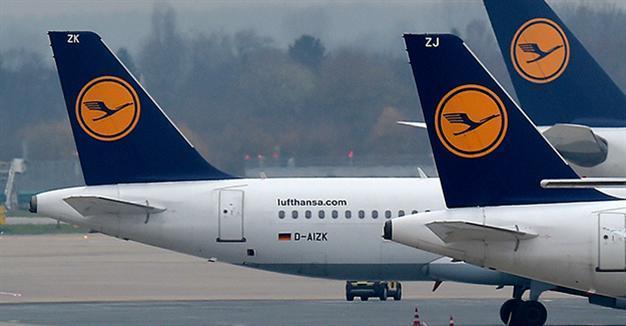Lufthansa sees uncertain times after attacks hurt bookings
BERLIN - Reuters

AP photo
Lufthansa gave a gloomy outlook for the key summer season and said it would focus on reducing costs after attacks in Europe deterred travelers from booking trips, creating price pressure for the German airline and its European rivals.The carrier two weeks ago lowered its profit target for the year and trimmed growth plans after bookings on long-haul routes to Europe fell following a series of attacks in Europe and political troubles stemming from Britain’s vote to leave the European Union and a failed coup attempt in Turkey.
“We don’t have any visibility on how people are booking, and we’re losing group bookings from Asia and the United States due to travel warnings,” Chief Financial Officer Simone Menne told journalists, although she said business travel was holding up.
The uncertainty comes during the important third quarter for European airlines, traditionally when they make most of their money due to the summer holidays. Other major carriers have cut back on planned growth due to the resulting pressure on prices.
Last week Air France-KLM said it was concerned about France’s attractiveness as a destination, while British Airways owner IAG gave a cautious outlook for the year.
Menne said Lufthansa had sold 67 percent of seats for the third quarter, 3 percent less than at this time last year.
Unit revenues are set to fall 8-9 percent in the second half and yields - a measure of pricing - are at levels last seen during the 2009 financial crisis, CEO Carsten Spohr said.
Its shares, down almost 30 percent this year, dropped 3.8 percent, the biggest faller among European travel and leisure stocks.
Lufthansa, which has been trying to reduce costs in the light of competition from low-cost carriers and fast-growing carriers such as Emirates and Turkish Airlines, said it aimed to reduce unit costs, excluding fuel and currency, by between 2 and 3 percent in the second half of the year.
“With the recent market developments, the importance of efficiency gains is prioritized... In 2017, the focus will be on cost efficiency and not growth,” Spohr said.
















